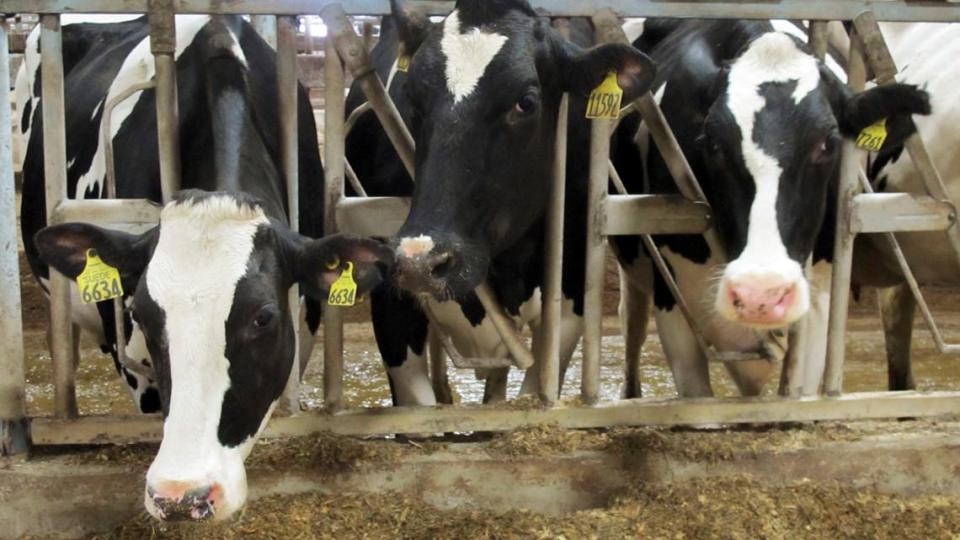MO dad who gave 7 of his kids COVID: Nurses ‘can’t even stop to clean up the vomit’
From his Kansas City hospital bed, 42-year-old Ben Anderson, of Cameron, Missouri, had a message for those who, like him, have for whatever reason not yet gotten the COVID-19 vaccine: “These nurses, doctors, are overwhelmed. They are doing the best they can but the emergency rooms are so busy with COVID patients they can’t even stop to clean up the vomit from one patient before they get a code blue and have to run because someone is dying. They are not showing us that on the nightly news. People don’t get it. This is not the sniffles.”
It wasn’t that Anderson was particularly opposed to getting vaccinated. “I wasn’t vaccinated because work was busy,” the software product manager said during an interview in Research Medical Center, where 95% of COVID patients in intensive care unit beds are also unvaccinated. Anderson took frequent breaths, as air seeped through the hole in his neck where a tracheostomy tube had been. “I just never had time.”
Six weeks ago, Anderson lay in an intensive care unit, unconscious and on a ventilator. An end-of-life team at the hospital called his wife Tammy Anderson to discuss removing him from the breathing machine he’d relied on for more than 20 days.
He knew before he got sick that COVID had claimed the lives of more than 600,000 people in the U.S. alone. But he thought of himself as too tough to become one of them.
Then, days after attending a June 27 gathering in Chillicothe, Missouri, he came down with what seemed like a cold. He was coughing and “in a fog.”
“I went to my room and stayed there,” he said. Anderson remained at home and quarantined from his family for two weeks. Every one of his seven children who are living at home — ages 3 to 18 — became infected with COVID-19, too. The only family member at home who was not ill was his wife. She also was the only family member who’d been vaccinated.
“I never got better. I just kept getting worse,” Anderson recalled. On July 10, Anderson’s wife returned from an errand and found him sitting on the shower floor, unable to stand.
She rushed him to Cameron Regional Medical Center, where doctors eventually said they could do nothing more to help him. That night, an ICU bed opened up at Research.

Anderson was lucky. With the highly transmissible delta variant of COVID-19 surging, hospital intensive care units in the area have been at capacity for weeks. Missouri has a record number of COVID patients in the ICU.
“I don’t understand it,” said Dr. David McKinsey, Anderson’s infectious disease physician, who has been treating critically ill COVID-19 patients since the city’s first reported case of the deadly virus nearly 18 months ago. “Anyone who has chosen not to receive the vaccine is putting themselves at significant risk of acquiring COVID and possibly dying. And they are putting others at risk too. The vaccine is safe.”
Maybe those who would rather take a livestock dewormer they read about on the internet than take expert advice from Dr. McKinsey will listen to Anderson, a martial arts instructor, devout Christian and father of eight.
When Trevor Johnson, 33, heard that Anderson, his martial arts instructor, was hospitalized with COVID, it surprised him. Johnson wasn’t vaccinated either and had no plans to change that, because he believed the vaccine was developed too fast to be safe.
But when he learned the friend he thinks of as the toughest guy he knows was barely clinging to life, his perspective changed.
Johnson got the first of two vaccination doses the next day. Now he’s telling anyone who asks, “I got mine and you should get it,” too.
Anderson, who was discharged from the hospital on Tuesday, understands that not getting vaccinated put his family at risk. It frustrates him, he said, that wearing masks and getting a protective shot in the arm has turned into a political pronouncement. “I can make a statement about my unwillingness to conform, but at what cost? The vaccine clearly is a way to keep us safe. This hole in my neck, the scar anyway, will always be there to remind me of the miracle.”
As “a man of faith,” Anderson’s brush with death, he said, taught him what he wants others, who might be vaccine hesitant or plain untrusting of science, to recognize: “Sometimes miracles come in the form of scientific advancements,” doctors, nurses and yes, vaccines.

